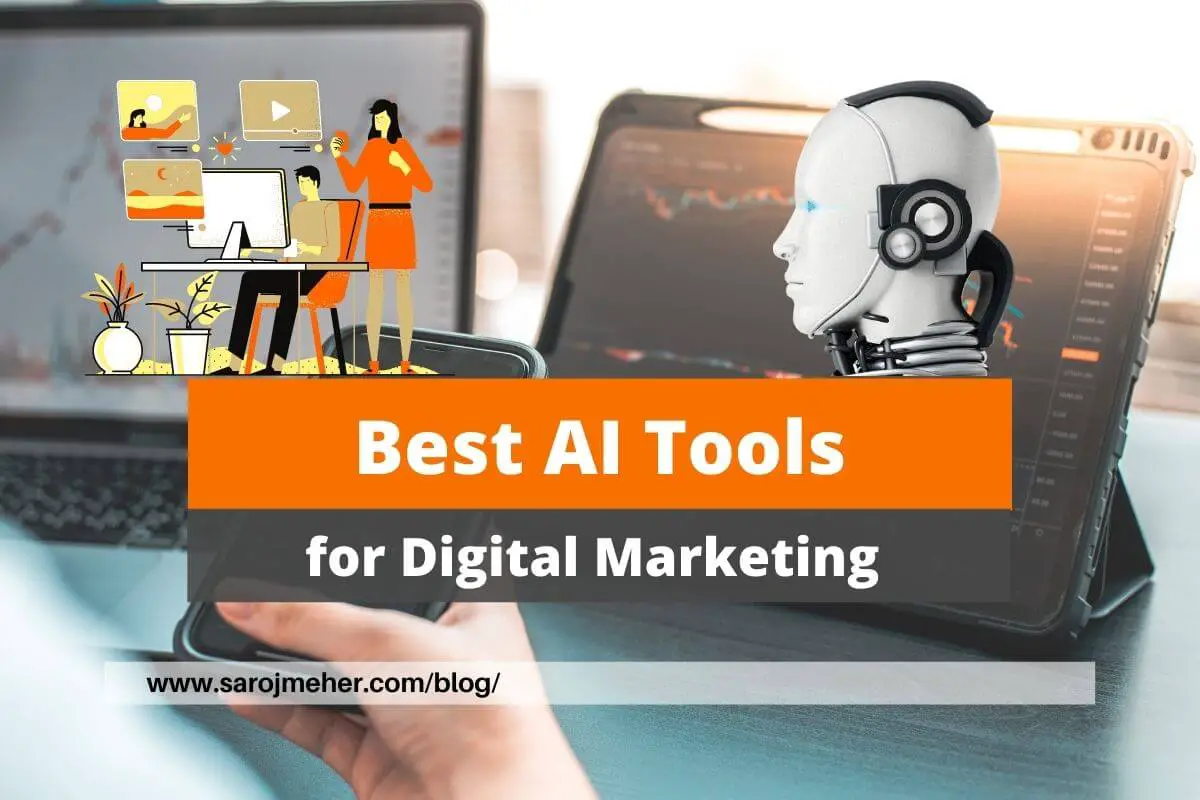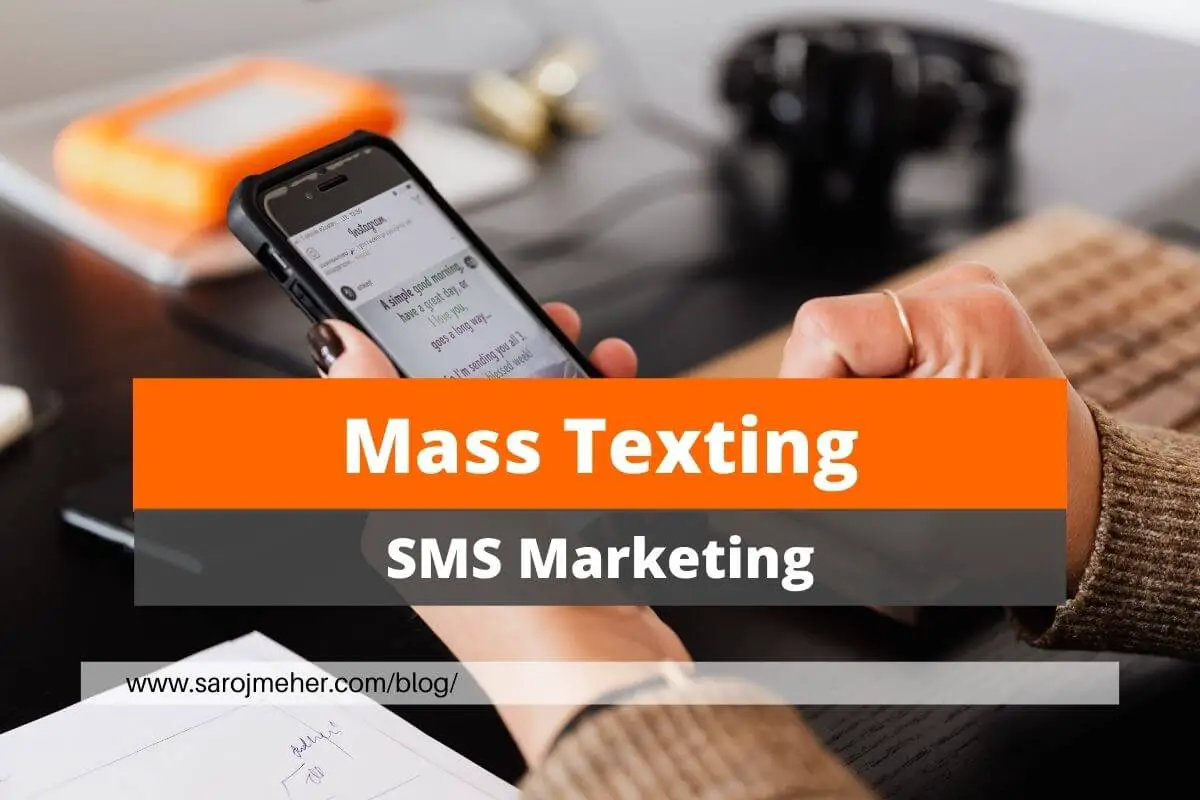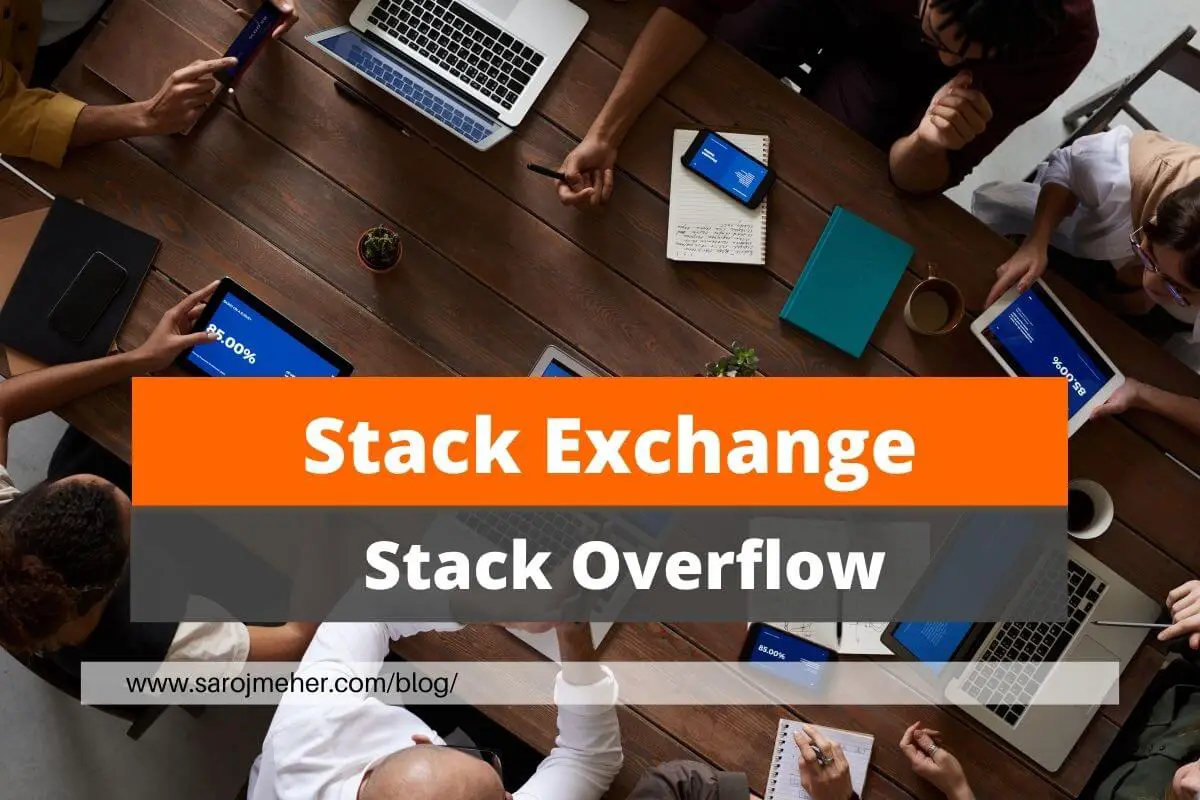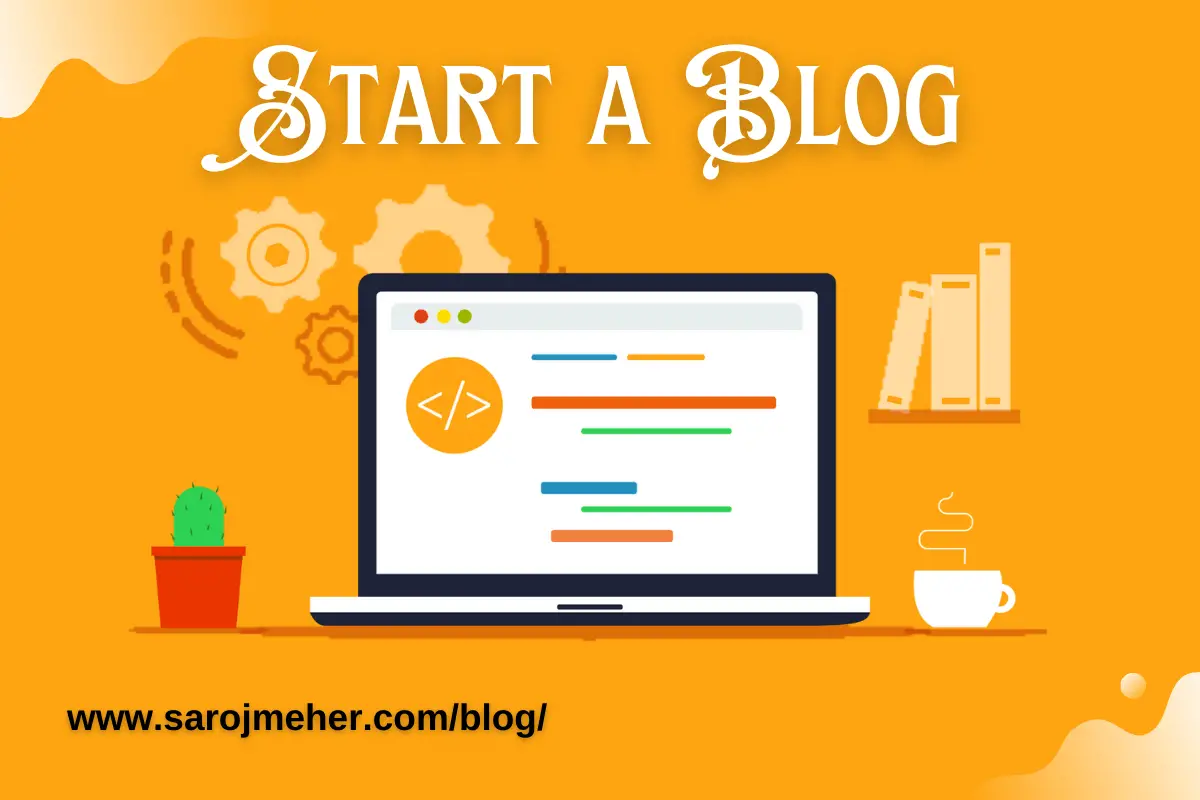First, get into the topic you should ask yourself –
Does Digital marketing need the help of AI tools?
Yes, digital marketing can greatly benefit from the help of AI tools. AI tools can analyze vast amounts of data, including customer behavior, preferences, and interactions, to gain valuable insights and enhance marketing strategies.
AI-powered algorithms can segment and target audiences more effectively, enabling marketers to deliver personalized content and offer to specific customer segments.
AI tools can also automate various marketing tasks such as lead generation, ad optimization, and campaign management, allowing marketers to focus on strategic planning and creative aspects of their campaigns.
Additionally, AI tools can monitor and analyze social media trends and sentiment, providing real-time feedback and allowing marketers to adapt their strategies accordingly. By leveraging AI tools, digital marketers can improve targeting, optimize campaign performance, and ultimately achieve better results and ROI.
Boost Your Digital Marketing Efforts with These Top AI Tools
Digital marketing has transformed the way businesses promote their products and services.
In this era of data-driven decision-making, artificial intelligence (AI) has emerged as a game-changer for digital marketers.
AI tools can analyze vast amounts of data, automate repetitive tasks, and deliver personalized experiences to target audiences.
In this article, we will explore the best AI tools for digital marketing that can help marketers optimize campaigns, enhance customer engagement, and drive better results.
1. Google Analytics
Website: analytics.google.com
Google Analytics is a web analytics tool provided by Google that allows website owners and marketers to track and analyze various aspects of their website’s performance. It provides valuable insights into website traffic, user behavior, and conversion rates.
By implementing a single tracking code on your website, you can collect data on metrics such as the number of visitors, page views, average time spent on site, bounce rate, and more.
Google Analytics offers a range of reports and features to help users understand their audience, identify trends, measure the effectiveness of marketing campaigns, and optimize their website’s performance. It provides valuable information for making data-driven decisions, improving user experience, and driving overall business growth.
Pros:
- Provides in-depth insights into website traffic, user behavior, and conversion rates.
- Helps identify high-performing channels and optimize marketing strategies accordingly.
- Offers powerful data visualization and reporting capabilities.
Cons:
- Requires proper configuration and understanding of data tracking mechanisms.
- Advanced features may require a learning curve for beginners.
2. Adext AI
Website: adext.ai
Adext AI is an AI-powered digital advertising optimization platform.
It uses machine learning algorithms to optimize advertising campaigns across multiple channels, such as Google Ads, Facebook Ads, and Instagram Ads.
Adext AI leverages its AI technology to automatically allocate budgets and optimize bids in real-time, ensuring that ad spend is directed towards the most effective placements and audiences.
The platform continuously learns from campaign data, making adjustments and recommendations to improve performance and achieve better ROI.
Adext AI aims to simplify the process of managing and optimizing digital advertising campaigns, allowing advertisers to save time and resources while maximizing the impact of their ads.
Pros:
- Uses AI algorithms to optimize digital advertising campaigns across multiple platforms.
- Automates budget allocation and bid management for improved ROI.
- Offers real-time performance monitoring and optimization recommendations.
Cons:
- Pricing may vary based on ad spend and features required.
- Limited integrations with certain advertising platforms.
3. Chatfuel
Website: chatfuel.com
Chatfuel is a popular chatbot development platform that enables users to create and deploy chatbots on various messaging platforms, including Facebook Messenger and Telegram.
It provides a user-friendly interface and a drag-and-drop bot-building interface, allowing users to design conversational flows and add functionalities to their chatbots without requiring coding skills.
Chatfuel offers a range of features such as natural language processing, AI-powered responses, integrations with third-party tools, analytics, and audience segmentation.
It allows businesses to automate customer support, engage with users, collect data, and provide personalized experiences through interactive chatbot conversations.
Chatfuel has become a popular choice for businesses looking to leverage chatbots to enhance their customer engagement and streamline their communication processes.
Pros:
- Enables the creation of AI-powered chatbots for conversational marketing.
- Automates customer support, lead generation, and personalized interactions.
- Integrates with popular messaging platforms like Facebook Messenger.
Cons:
- Advanced features may require technical expertise or additional development.
- Chatbot responses may sometimes lack human-like context understanding.
4. Canva
Website: canva.com
Canva is a popular graphic design platform that offers a wide range of design templates and tools for creating various visual content such as social media posts, presentations, flyers, and more. While Canva does not have built-in AI features, it does provide some AI-powered functionalities to enhance the design process.
One of the AI features in Canva is the background remover tool. This tool uses AI algorithms to automatically detect and remove the background from images, saving users time and effort in manual editing.
Canva also provides a “Magic Resize” feature that uses AI to intelligently adjust the size and layout of designs to fit different formats. This feature allows users to quickly adapt their designs for various social media platforms or print materials without having to start from scratch.
Additionally, Canva offers a library of stock images, illustrations, and templates that are intelligently categorized and searchable using AI algorithms. This makes it easier for users to find relevant visual assets for their designs.
While Canva’s AI features may not be as extensive as dedicated AI design tools, they still provide users with helpful automated functionalities to streamline their design workflow and create visually appealing content.
Pros:
- AI-powered graphic design tool with intuitive drag-and-drop interface.
- Offers ready-made templates, stock images, and design elements.
- Simplifies the creation of visually appealing social media posts, infographics, and more.
Cons:
- Some advanced features and templates require a paid subscription.
- Limited customization options for complex design requirements.
5. SEMrush
Website: semrush.com
SEMrush is a comprehensive digital marketing platform that offers a range of tools and features to help businesses with their online marketing strategies. While SEMrush does not have built-in AI features, it does provide several features and capabilities that leverage machine learning and advanced algorithms to enhance marketing campaigns. Here are some ways SEMrush incorporates AI-like functionalities:
- Keyword Research: SEMrush uses machine learning algorithms to analyze vast amounts of data and provide keyword suggestions, search volume estimates, and keyword difficulty scores, helping marketers optimize their SEO and PPC campaigns.
- Competitive Analysis: SEMrush’s competitive analysis tools utilize machine learning to analyze competitors’ websites and advertising strategies, providing insights on organic and paid keywords, backlinks, and ad copy. This data helps businesses understand their competitive landscape and make informed decisions.
- Content Optimization: SEMrush provides content optimization features that analyze the performance of existing content and suggest improvements based on SEO best practices. This includes recommendations for keyword usage, readability, and content length.
- Advertising Performance: SEMrush offers AI-driven tools for monitoring and optimizing advertising campaigns. These tools provide insights into ad performance, suggestions for ad copy optimization, and automated bid management.
- Social Media Management: SEMrush includes social media management features that allow users to schedule posts, monitor social media engagement, and analyze social media performance using AI-like algorithms that process large volumes of social media data.
While SEMrush does not explicitly label these features as AI, they leverage advanced algorithms and machine learning techniques to provide marketers with powerful insights and recommendations, enabling them to make data-driven decisions and optimize their marketing strategies.
Pros:
- Comprehensive SEO and digital marketing toolkit with AI-powered features.
- Assists in keyword research, competitor analysis, and backlink monitoring.
- Provides actionable insights to improve search engine rankings and ad campaigns.
Cons:
- Pricing plans can be expensive for small businesses or individual marketers.
- Advanced features may require a learning curve for beginners.
6. HubSpot
Website: hubspot.com
HubSpot is an all-in-one marketing, sales, and customer service platform that provides businesses with a suite of tools and features to manage their inbound marketing strategies.
It offers a comprehensive set of solutions, including CRM, email marketing, lead generation, social media management, content management, and analytics.
HubSpot’s integrated platform enables businesses to attract, engage, and nurture leads, streamline their sales processes, and deliver exceptional customer experiences. With its user-friendly interface and robust automation capabilities, HubSpot empowers businesses to effectively manage their marketing, sales, and customer service efforts, driving growth and fostering long-term customer relationships.
Pros:
- All-in-one inbound marketing platform with AI-powered automation.
- Helps manage customer relationships, email marketing, and lead nurturing.
- Offers content management, analytics, and social media scheduling features.
Cons:
- Advanced features may require a higher-tier subscription.
- Integration with certain CRM systems may require additional setup.
7. Mailchimp
Website: mailchimp.com
Mailchimp is an email marketing platform that offers AI-powered features to enhance the effectiveness of email campaigns.
With its AI capabilities, Mailchimp provides predictive insights to help businesses optimize their email marketing strategies.
It uses machine learning algorithms to analyze user data, including engagement patterns, purchase behavior, and demographics, to predict customer preferences and segment audiences more effectively.
This allows businesses to deliver personalized and targeted email content, increasing the chances of engagement and conversions.
Additionally, Mailchimp’s AI features enable automated email send time optimization, which identifies the optimal time to send emails to individual subscribers based on their past interactions.
By leveraging AI, Mailchimp empowers businesses to optimize their email marketing efforts and deliver more relevant and timely messages to their audience.
Pros:
- AI-powered email marketing platform for creating and automating campaigns.
- Offers personalization features, A/B testing, and audience segmentation.
- Provides analytics and insights to optimize email performance.
Cons:
- Pricing can increase as the subscriber count grows.
- Limited automation features compared to more advanced marketing automation tools.
8. Hootsuite
Website: hootsuite.com
Hootsuite, a popular social media management platform, incorporates AI features to enhance its capabilities.
Leveraging AI technology, Hootsuite provides advanced social media analytics, sentiment analysis, and content recommendations. The platform utilizes machine learning algorithms to analyze social media data, identify trends, and generate actionable insights for businesses.
With AI-powered scheduling and publishing, Hootsuite suggests optimal times to post content based on audience behavior and engagement patterns.
It also offers AI-driven chatbot integrations to automate customer support on social media platforms.
Pros:
- Social media management platform with AI-powered scheduling and monitoring.
- Helps manage multiple social media accounts and streamline content publishing.
- Offers analytics and reporting features for tracking social media performance.
Cons:
- Advanced features may require a higher-tier subscription.
- Limited engagement features on certain social media platforms.
9. SocialBee
Website: socialbee.io
SocialBee is a social media management platform that offers AI-powered features to enhance social media marketing efforts.
With its AI capabilities, SocialBee provides advanced scheduling and posting options, automating content distribution across multiple social media platforms.
The AI algorithm analyzes user preferences, engagement patterns, and optimal posting times to recommend the most effective scheduling strategies.
SocialBee also leverages AI to curate and suggest relevant content based on user preferences and industry trends, saving time and effort in content discovery.
Pros:
- AI-powered social media scheduling and content curation platform.
- Automates content posting, hashtag suggestions, and audience targeting.
- Offers category-based content libraries and content recycling options.
Cons:
- Pricing plans can be expensive for small businesses or individual marketers.
- Limited analytics compared to more comprehensive social media management tools.
10. Mention
Website: mention.com
Mention is a media monitoring and social listening platform that utilizes AI features to help businesses track and analyze online mentions of their brand, competitors, and industry.
With AI-powered sentiment analysis, Mention can categorize and analyze the tone and sentiment of mentions, providing valuable insights into public perception.
Its AI algorithms also enable advanced topic clustering, allowing users to group related mentions together for a more comprehensive analysis.
Additionally, Mention leverages AI to identify influential voices and opinion leaders in online conversations, helping businesses identify key individuals for potential partnerships or outreach.
Pros:
- AI-powered social media listening and brand monitoring tool.
- Tracks brand mentions, sentiment analysis, and competitor activities.
- Provides real-time alerts and insights for effective reputation management.
Cons:
- Advanced features may require a higher-tier subscription.
- Some users may find the interface overwhelming initially.
Conclusion:
These AI tools offer digital marketers a wide array of capabilities to enhance their strategies and achieve better results.
From analytics platforms like Google Analytics and SEMrush to AI-powered automation tools like Adext AI and Chatfuel, each tool brings unique benefits to the table.
By leveraging these tools effectively, marketers can optimize campaigns, improve customer engagement, and make data-driven decisions that drive success in the digital marketing landscape.














